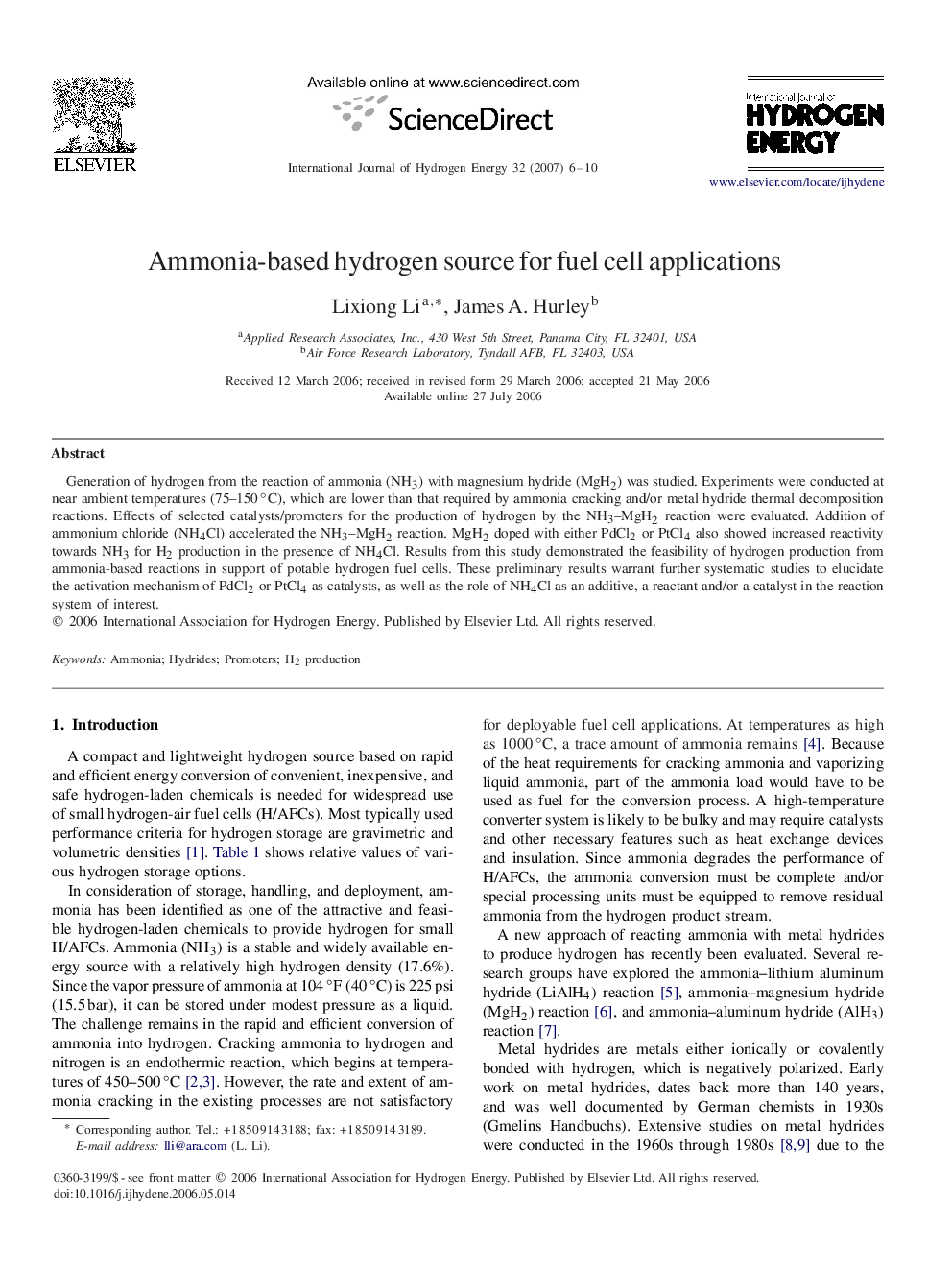| Article ID | Journal | Published Year | Pages | File Type |
|---|---|---|---|---|
| 1280787 | International Journal of Hydrogen Energy | 2007 | 5 Pages |
Generation of hydrogen from the reaction of ammonia (NH3NH3) with magnesium hydride (MgH2MgH2) was studied. Experiments were conducted at near ambient temperatures (75–150∘C), which are lower than that required by ammonia cracking and/or metal hydride thermal decomposition reactions. Effects of selected catalysts/promoters for the production of hydrogen by the NH3NH3–MgH2MgH2 reaction were evaluated. Addition of ammonium chloride (NH4ClNH4Cl) accelerated the NH3NH3–MgH2MgH2 reaction. MgH2MgH2 doped with either PdCl2PdCl2 or PtCl4PtCl4 also showed increased reactivity towards NH3NH3 for H2H2 production in the presence of NH4ClNH4Cl. Results from this study demonstrated the feasibility of hydrogen production from ammonia-based reactions in support of potable hydrogen fuel cells. These preliminary results warrant further systematic studies to elucidate the activation mechanism of PdCl2PdCl2 or PtCl4PtCl4 as catalysts, as well as the role of NH4ClNH4Cl as an additive, a reactant and/or a catalyst in the reaction system of interest.
